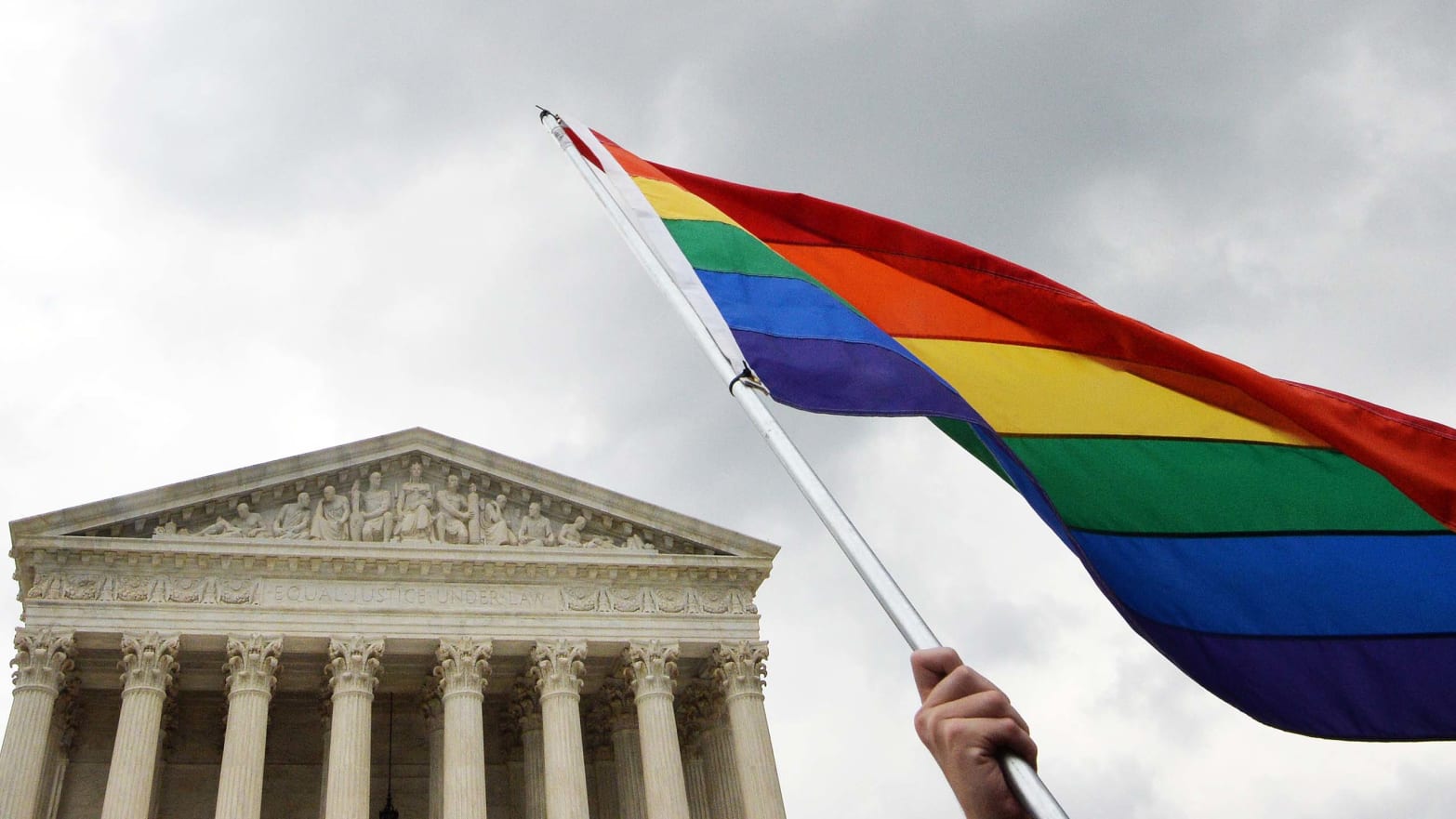Impact Fund and Allies File Amicus Brief Urging SCOTUS to Protect LGBTQ Workers
Kara Gordon, Summer Law Clerk
Lesbian, gay, bisexual, and transgender (LGBT) people experience discrimination and harassment in the workplace at far higher rates than straight, cisgender workers. In 2016 alone, over 25% of LGBT workers reported experiencing discrimination at work, and an astounding 80% of transgender workers experienced discrimination or actively took steps to avoid it.
And yet, with the Equality Act languishing in the Senate, there is no explicit federal protection against discrimination because of sexual orientation or transgender status. Title VII of the 1964 Civil Rights Act does prohibit workplace discrimination based on sex, and the Supreme Court is poised to decide whether this includes sexual orientation and transgender status in a trilogy of cases: Bostock v. Clayton County, Georgia, Altitude Express, Inc. v. Zarda, and R.G. & G.R. Harris Funeral Homes, Inc. v. E.E.O.C. (If you want to read more about these cases, we previously wrote about them here.)
Don Zarda left with his partner Bill Moore in happier days. Don tragically passed away in an unrelated base jumping accident before his trial, but his estate continues to seek justice.
Today, the Impact Fund, the National Employment Lawyers Association (NELA), the Employee Rights Advocacy Institute for Law & Policy (the NELA Institute), and 19 additional legal and advocacy organizations filed an amicus brief in the United States Supreme Court to describe why courts and workers need a clear statement that discrimination based on sexual orientation and gender identity is illegal sex discrimination. Together, we represent a diverse and intersectional coalition of workers’ rights, legal services, and allied organizations representing LGBTQ low-wage workers, immigrants, people of color, older people, and people with disabilities.
In our brief, we describe the pervasive workplace discrimination and harassment that LGBTQ people experience because of their sexual orientation and gender identity, including how rates of discrimination and harassment rise for LGBTQ people who also work in low-wage industries, are older workers, belong to communities of color, or are people with disabilities.
Donna and Aimee Stephens of Michigan are taking her Title VII case, R.G. & G.R. Harris Funeral Homes, Inc. v. E.E.O.C., to the U.S. Supreme Court
The LGBTQ community needs clear workplace protections, yet the current state of the law is challenging, unpredictable, and unworkable for courts and workers. The three cases before the Court illustrate the problem. Faced with similar scenarios, the Eleventh Circuit in Bostock and the Second Circuit in Zarda disagreed as to whether discriminating against a lesbian, gay, or bisexual worker is a form of unlawful sex discrimination arising from the belief that people should be attracted to members of the opposite sex while people with same-sex attraction violate gender stereotypes. Meanwhile, the Sixth Circuit’s decision in Harris Funeral Homes represents a consistent line of circuit court decisions concluding that discrimination against transgender workers because of their transgender or transitioning status is unlawful sex discrimination.
We argue that the Court should clarify that “sex,” as defined under federal law, includes sexual orientation. If it does not, courts and workers will be forced to engage in “lexical bean counting,” as the Zarda court described it, the impossible task of counting up incidents of discrimination and harassment based on sex as compared to sexual orientation to see which wins out. Courts struggle with this analysis in many parts of the country and have described it in turns as “illogical,” “unworkable,” and “arbitrary.” In addition, these cases and many others demonstrate that workplace discrimination often does not fit tidily into one category or the other. Imposing this artificial distinction limits the ability of lesbian, gay, and bisexual workers to present their full experiences of workplace discrimination as they try to thread the needle of proving sex discrimination, as distinct from discrimination based on sexual orientation.
Gerald Bostock joined a gay recreational softball league and his participation was ridiculed and disparaged.
Our brief urges the Court to set a similar uniform and predictable standard for sexual orientation discrimination as the significant majority of federal courts already have done for gender identity discrimination. The Sixth Circuit’s decision in Harris Funeral Homes joined a chorus of circuit and district court decisions, concluding that discrimination against transgender people is sex discrimination because it is impossible to distinguish sex from transgender or transitioning status. As a result of the clarity on this issue, courts faced with claims of gender identity discrimination avoid the “lexical bean counting” and consider claims of gender identity discrimination just as they do discrimination based on any other protected characteristic.
LGBTQ workers are entitled to the full protections of our nation’s laws. If the Supreme Court rules that Title VII does not prohibit discrimination based on sexual orientation and gender identity, it will create an arbitrary and painful carve-out to the landmark civil rights law, leaving LGBTQ workers vulnerable to discrimination and harassment on the job. The Impact Fund and our allies urge the Court to adopt a uniform, protective standard that will fulfill Title VII’s promise of equal employment opportunity for all.
Impact Fund, NELA, and the NELA Institute are proud to be joined by fellow amici: AARP; AIDS Legal Referral Panel; American Association for Access, Equity and Diversity; Bet Tzedek; California Rural Legal Assistance Foundation; California Rural Legal Assistance, Inc.; Centro de los Derechos del Migrante; Centro Legal de la Raza; Civil Rights Education and Enforcement Center; Disability Rights Advocates; Disability Rights Education & Defense Fund; East Bay Community Law Center; Legal Aid at Work; National Black Justice Coalition; Oasis Legal Services; Public Justice; SAGE; Shriver Center on Poverty Law, Inc.; and Western Center on Law & Poverty.





